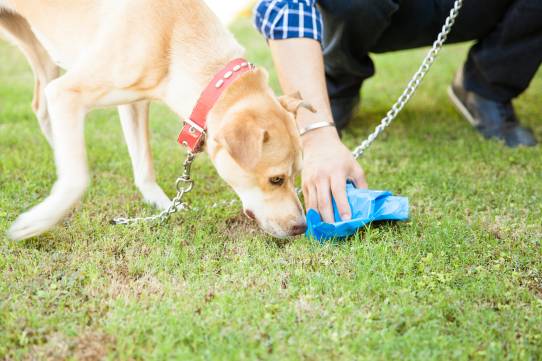Many types of products come with desiccant packets inside them. This includes jerky, shoes, medications, and more. What are these packets for? What’s inside the desiccant? What happens if your dog eats desiccant? Is desiccant toxic to dogs?
Connect with a verified veterinarian in minutes. Licensed vets are available 24/7 to answer your questions. No need to worry about your furry family member.
What is Desiccant?
Desiccants are those small packets that contain beads or other materials. The purpose of these packets is to keep things dry. The most common substance in these packets is silica, which is non-toxic. You’ll often find silica packets in clothing, shoes, food & medication containers, and more.
These little packets have always been a bit of a mystery. They usually say, “Don’t eat this package,” or another similar message. So, you know not to eat the packets. But what happens if your dog eats some silica?
Desiccant & Dogs
The good news is that the silica packets are non-toxic! In small amounts, they won’t harm your dog. However, in larger amounts, it’s possible the silica pellets could clump together and cause an intestinal blockage. This is a life-threatening medical emergency.

Review symptoms, medications & behavior to keep your pets healthy with a Vet Online in just minutes.
Symptoms of an Intestinal Blockage in Dogs
You may notice these symptoms if your dog has developed an intestinal blockage:
- Constipation
- Lethargy
- Diarrhea
- Vomiting
- Abdominal pain & swelling
If you notice these symptoms in your dog, call the vet immediately. This is a life-threatening medical emergency.
Treatment of Intestinal Blockage in Dogs
When you get to the vet’s, they will perform a physical exam of your dog. They will also order lab work and x-rays. The x-rays will be used to see where the blockage is located. Your fur baby may also need an IV to help him stay hydrated and make it easier to give him additional medications.
Your dog may require surgery to safely remove the blockage. The surgery is done under complete anesthesia. After the surgery, your canine companion may need to stay in the hospital for a few days until he’s strong enough to go home again.
During your dog’s recovery, it’s important to keep him quiet and keep activities to a minimum. Most dogs do well on a bland diet of dry food and no treats for a few days. After this, regular foods can be slowly added again.
The prognosis is excellent for dogs who receive prompt medical care for an intestinal blockage. Just remember to keep those silica packets away from your fur baby. This may mean storing them up high or investing in a wastebasket with a lid, which your dog can’t open!
Connect with a verified veterinarian in minutes. Licensed vets are available 24/7 to answer your questions. No need to worry about your furry family member.

Julie
Julie is a graduate of the University of North Carolina, Wilmington, where she studied Animal science. Though contrary to the opinion of her parents she was meant to study pharmacy, but she was in love with animals especially cats. Julie currently works in an animal research institute (NGO) in California and loves spending quality time with her little cat. She has the passion for making research about animals, how they survive, their way of life among others and publishes it. Julie is also happily married with two kids.
Review symptoms, medications & behavior to keep your pets healthy with a Vet Online in just minutes.
Ask a Vet Live Now




